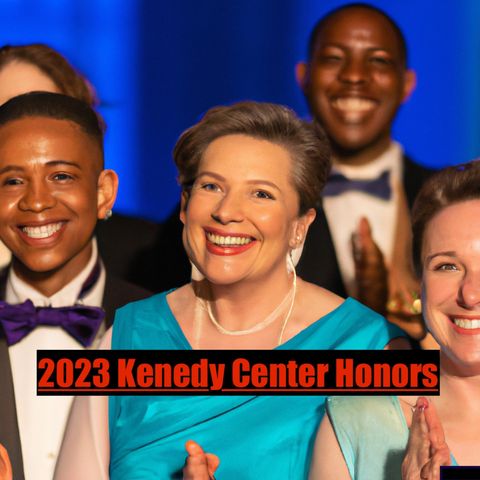The Kennedy Center Honors: A Beacon of Artistic Recognition The Kennedy Center Honors, a prestigious recognition bestowed upon individuals who have made significant contributions to American culture through the performing arts, holds a unique position in the world of artistic accolades. Established in 1978 by President Jimmy Carter, the Honors have become an annual tradition, celebrating the transformative power of the arts and honoring those who have enriched the nation's cultural landscape. The Genesis of an Award The genesis of the Kennedy Center Honors can be traced back to a 1975 proposal by then-president of the Kennedy Center, Roger L. Stevens. Stevens envisioned an award that would recognize individuals who had made significant contributions to the arts, similar to the Nobel Prize for literature. His proposal resonated with President Gerald Ford, who issued an executive order establishing the Kennedy Center Honors. A Presidential Legacy The first Kennedy Center Honors ceremony took place on December 29, 1978, at the Kennedy Center Opera House in Washington, D.C. President Carter, accompanied by First Lady Rosalynn Carter, presented the Honors to five remarkable individuals: Leonard Bernstein, George Balanchine, Marian Anderson, Peter Ustinov, and Igor Stravinsky. From its inception, the Kennedy Center Honors has been closely linked to the presidency. Each year, the president of the United States serves as the honorary chairman of the Honors, and the ceremony often takes place in the presence of the president and first lady. This presidential connection underscores the importance of the arts in American culture and the government's commitment to recognizing and supporting artistic excellence. Honoring a Spectrum of Artistic Pursuits Over the years, the Kennedy Center Honors has recognized a diverse array of artists, spanning genres such as music, dance, theater, film, television, and opera. The list of honorees includes legendary figures such as Bob Dylan, Martha Graham, Fred Astaire, David Bowie, and Bette Davis. The breadth of artistic representation in the Kennedy Center Honors reflects the wide-ranging impact of the arts on American society. From the captivating melodies of musicians to the mesmerizing movements of dancers, from the poignant stories told on stage to the compelling narratives woven into films, the arts touch our lives in countless ways. A Celebration of Artistic Impact The Kennedy Center Honors is more than just an award ceremony; it's a celebration of the profound impact that the arts have on individuals, communities, and the nation as a whole. The honorees are not merely recognized for their artistic achievements; they are also celebrated for their ability to inspire, challenge, and move us through their artistry. The Honors ceremony itself is a testament to the transformative power of the arts. The audience, filled with art enthusiasts, dignitaries, and fellow artists, bears witness to performances and tributes that showcase the honorees' exceptional talents and the enduring impact of their contributions. A Legacy of Recognition and Inspiration The Kennedy Center Honors has become a cornerstone of American cultural recognition, serving as a beacon of light that illuminates the transformative power of the arts. The Honors have not only celebrated the achievements of exceptional artists but have also inspired generations to pursue their own artistic passions and contribute to the rich tapestry of American culture. Thanks for listening to Quiet Please. Remember to like and share wherever you get your podcasts.
show less


Comments